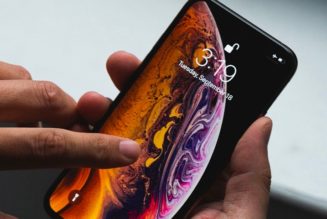
It’s been just over three weeks since the Epic v. Apple proceedings kicked off, and the news has been relentless. So as we wait for a verdict to roll in, we’re taking a quick turn through all the biggest takeaways from the trial. A lot of the juiciest points didn’t speak directly to the verdict — like the profit structure of the Xbox or the troubled history of Fortnite crossplay — but that’s part of the fun of a massive trans-corporate dustup like this. Once you start digging through CEO Tim Cook’s inbox, all sorts of interesting stuff comes out.
1] Apple keeps iMessage closed in order to sell more iPhones
We’ve known for a while that Apple isn’t going to make iMessage available outside of iOS devices, but this trial showed exactly how thoroughly Apple has considered expanding iMessage into other operating systems — and exactly why the company doesn’t want to.
Internal emails show Eddy Cue pushing to expand iMessage into a WhatsApp-style messaging platform as early as 2013 — and the issue reemerging in an email to Phil Schiller in 2016. The idea was rejected for the same reason both times: opening up iMessage would just mean one less reason to buy an iPhone.
2] PlayStation’s Fortnite crossplay deal is even sketchier than we realized
Sony took its time enabling crossplay between different console versions of Fortnite, eventually relenting late in 2018. But a handful of new emails with Epic Games showed the deal was even knottier than was publicly known. Apparently, Sony saw crossplay as a business liability for its business and was only willing to adopt it after Epic agreed to a complicated cross-platform revenue sharing agreement. It’s a unique arrangement — but since we also learned PlayStation is the top revenue driver for Fortnite, Epic seems to have been willing to make concessions for the platform.
3] Apple pulled out all the stops to keep Netflix selling subscriptions on the iPhone
Apple insists it treats all App Store developers equally, but it’s clear big players like Amazon have gotten special treatment because of their sheer number of users. This trial turned up another instance, with emails that showed Apple employees scrambling behind the scenes to keep Netflix from removing in-app purchases from its iPhone app in 2018.
For Netflix, the logic was hard to avoid: Apple’s 30 percent cut was costing it money any time someone signed up through the iOS app instead of through a web browser. But for a while, Apple was willing to do just about anything to keep Netflix from giving in to the obvious economics.
4] The App Store is wildly profitable, but Apple won’t admit it
One of the running jokes of the trial was Apple’s insistence that it had no idea how much money the App Store makes in profit. Phil Schiller said outright that he had no idea if the App Store had brought in more money than it spent since 2009 “because that’s not how I look at the business.” (For context, the App Store brought in more than $60 billion in 2020, which would be quite a lot to burn through without realizing.) Tim Cook was a little bit more reserved, saying he believed it was profitable but hadn’t calculated by how much.
The firmest number came from an expert witness hired by the Epic side, who pegged the profit margin as high as 78 percent. That would leave Apple with more than $45 billion in profit from the App Store alone — but don’t expect them to admit it out loud.
5] The economics of the Xbox is kind of weird
Microsoft was a kind of unofficial sidekick to Epic for the trial, providing executives to testify in court and abruptly lowering its Windows Store fees to put extra pressure on Apple. But the most exciting turn came when Xbox boss Lori Wright took the stand, testifying that Microsoft doesn’t make money from Xbox hardware.
For lawyers on the Epic side, the goal was to distinguish the Xbox from the iPhone: Microsoft sells Xbox hardware at a loss (or a near-loss), so the company’s approach is different from Apple, which makes money off every iPhone it sells. But any new information about the Xbox business was interesting far beyond Epic and Apple, so things started to spiral almost immediately. Microsoft’s official PR was quick to walk back the claim, making sure everyone knew that the overall Xbox business is profitable in spite of the hardware subsidy.
Apple pressed the issue even further, trying to force Microsoft to release its profit-and-loss statements for the Xbox business if it wanted to keep Wright’s testimony in the record. It was a chance to see serious jousting between some of the biggest companies in the world — and a reminder of how knotty these businesses are once you look under the hood.
6] The economics of the Epic Games Store is even weirder
In the lead-up to the trial, Epic v. Apple case filings showed Epic has spent hundreds of millions of dollars on its PC gaming storefront. Much of that went toward pricey deals to attract developers and consumers, including a free games program that earned Epic millions of new users while offering developers a flat fee for participation. Epic also tried to get Sony and Microsoft’s first-party games on the Epic Games Store, although it apparently never reached a deal over them. Tim Sweeney said in testimony that he expects the store to turn a profit around 2024 — although Epic has apparently planned out several possible scenarios for its future.
7] Apple gains a lot by slow-walking progressive web apps on the iPhone
In theory, there’s a way to get software onto iPhones that doesn’t include the App Store. iPhones include web browsers, after all, and there’s a whole range of technologies (usually bundled under the name Progressive Web Apps or PWAs) that are intended to make the functionality of an app available through a browser. Google has been pushing this hard with some support from Microsoft and Twitter — but so far, mobile Safari has been slow to roll out support.
We didn’t get any new documents saying exactly why that is, but we did get a whole lot of Apple executives saying how important it was for Apple to be able to protect iPhone users from bad apps. In short, Apple sees its stranglehold on iOS software as an important security feature — and progressive web apps threaten that stranglehold. As long as that stays true, it’s hard to imagine mobile Safari catching up in PWA support.
8] Apple is still worried about malware downloads on the Mac
One of Epic’s big challenges to Apple is why the company can’t run the iPhone the same way it runs the Mac: with a central app store but lots of other ways to get software outside of it. On the stand, Craig Federighi had a simple answer: we don’t actually like how it works on the Mac. Federighi said the level of malware on the Mac was “unacceptable” and that iOS would get “run over” by malware attacks if it adopted the same model.
The whole point of the trial is to maintain App Store exclusivity, so it’s no surprise that Federighi wanted to shut the door — but the sheer anxiety he showed about Mac malware came as a bit of a surprise. It’s particularly notable since some people are worried that macOS is inching toward the iOS model, making it a little more difficult to install unauthorized software with each new version. If you were already anxious about the Mac ecosystem closing off entirely, Federighi’s testimony gave you plenty more to worry about.
9] Tim Sweeney has been bugging Tim Cook about this for years
Arguably the funniest part of the trial has been the sheer determination of Tim Sweeney to unwind Apple’s app store policies. The fight became public when Fortnite went nuclear last year, but new emails from Sweeney show he’s been trying to charm, cajole, and annoy Apple into allowing alternate app stores for years now.
That effort peaked with a 2015 email directly to Cook, laying out the case for an open iOS over the course of four paragraphs. (Cook responded to Schiller and Cue: “Is this the guy that was at one of our rehearsals?”) Three years later, Sweeney was still trying, pressing the case through the various developer-relations channels.
Of course, Tim Cook is not going to change Apple’s business model just because some guy emailed him saying it would be a good idea — but there’s no harm in trying, right?










